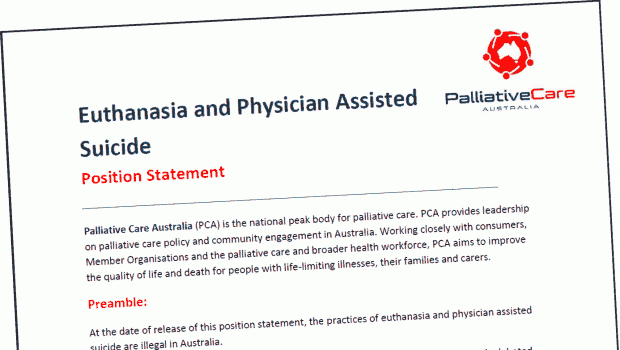Palliative Care Australia filibusters against assisted dying

I’ve written previously about palliative care specialists trying to filibuster assisted dying law reform. In this F file, I reveal how Australia’s peak body for palliative care (PC), Palliative Care Australia (PCA), segues from a state of ignorance to its own filibuster that would stall assisted dying choice.
First up, let me say that I hold deep admiration for the generally excellent services PC specialists provide at the bedside. I believe that PC deserves strong support and good funding. The peak body’s leadership in regard to its stance on assisted dying, however, is of a dramatically lower calibre.
Revised policy statement
In PCA’s latest incarnation of its Position Statement on ‘Euthanasia and physician assisted suicide’,1 the organisation says that:
“Public discussion and policy development on issues related to euthanasia and physician assisted suicide should be informed by research. There is insufficient research into euthanasia and physician assisted suicide.” — Palliative Care Australia, Position Statement
One can only agree wholeheartedly with the first sentence. Of course public discussion and policy development should be informed by research wherever possible.
The filibuster
And there follows the filibuster rub — PCA unequivocally claims that there is insufficient research. The logical consequence of PCA's juxtaposition is that we ought to muzzle public discussion and policy development because, PCA alleges, there is insufficient research to inform it.
Certainly in terms of Australia there are only a handful of published studies into attitudes and practices. But assisted dying is illegal in Australia. There are very substantial ethical and legal issues when it comes to conducting research.
Who is PCA to claim "insufficient research"?
PCA is the peak body for PC, a specific discipline within medicine that represents (well-paid) doctors. It runs a staffed office in Fyshwick ACT, and is overseen by a Board and Executive. It has a key purpose of lobbying in the halls of power in the Federal Parliament, and, presumably on the basis of the statement above, has a goal of ensuring that government PC policy (and funding) is informed by research. You'd think it might have some resources and connections to go looking for some research evidence.
A revealing comparison
In comparison, I conduct my assisted dying law reform work on a completely pro-bono basis, as a single individual, in my spare time. I have a formal literature collection on end-of-life decision making, including assisted dying, of currently over six thousand articles. I’m not talking about mere opinion published in the media: I’m talking about articles published in professional journals and in official government and agency reports.
I just ran a quick check across my database, looking for items specifically in respect of assisted dying (not medical or palliative care in general) in the Netherlands, Belgium and Oregon, where assisted dying has been legal for some time. Here’s what I found.
In respect of assisted dying the Netherlands I hold 366 journal articles and 25 official reports. For Belgium, I hold 152 journal articles and 11 official reports. And for Oregon I hold 144 journal articles and 32 official reports.
That’s a total of 662 journal articles and 68 official reports in respect of three lawful assisted dying jurisdictions. And that doesn’t count any holdings of book chapters, conference papers and the like. The journal article count will be somewhat overstated because a minority of journal papers are about more than one lawful jurisdiction (e.g. the Netherlands and Belgium). So let’s estimate that downwards to, say, a mere 400 journal articles.
That’s an abundance of evidence from and review about jurisdictions where assisted dying is legal. Could we always know more about assisted dying? Sure.
Double standards when it comes to evidence
We could also know a lot more about PC. I recently asked PCA for a simple but critical headline statistic — one you’d think was necessary to inform policy about PC resources and funding: “what proportion of Australians who experience a non-sudden death (i.e. deaths where PC might be relevant) actually receive PC?”
PCA kindly responded, but the answer in a nutshell was “we don’t know.”
But I wouldn't suggest for a moment that we muzzle “public discussion and policy development on issues related to PC” because the peak body hasn't done enough research to calculate (or even estimate) a fundamental policy-informing statistic.
Conclusion
The Australian community would be better served if PCA acquainted itself with the extensive available literature on assisted dying in lawful jurisdictions (as well as headline PC statistics), and dropped its inappropriate filibuster.
References
- Palliative Care Australia 2016, Euthanasia and physician assisted suicide: Position statement, viewed 1 Sep 2016, <http://palliativecare.org.au/download/2448/>.

